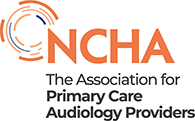21 June 2018
New NHS guideline to tackle unmet hearing needs
People with hearing difficulties should be encouraged to access care sooner and be provided with two hearing aids when they have a hearing loss in both ears, according to a new guideline published by NICE today.
The guideline, aimed at driving improvement in NHS hearing care, states that hearing loss is “a major public health issue affecting about 9 million people” and is now ranked “third for disease burden in England (years lived with disability)”. With age-related hearing loss being the single biggest cause of hearing loss, the guideline warns that by 2035 the number of adults with hearing loss in England will increase to 13 million – a fifth of the population.
NICE is clear that earlier diagnosis and management will reduce the psychological, financial and health burden of hearing loss. It also calls on the NHS and wider system to tackle hearing loss by addressing unwarranted variation in quality and access, as well as tackling the barriers many people with hearing loss currently face when they try to access support.
New economic data from NICE shows that hearing aids are very cost-effective for adults with hearing loss. As a result, NICE is calling on the health system to:
• offer hearing aids to adults whose hearing loss affects their ability to communicate and hear
• offer two hearing aids to all adults with a loss in both ears
• support people get the most out of hearing aids to minimise the impact of hearing loss.
In addition to tackling unmet hearing needs, the guideline aims to reduce pressure on specialist ear, nose and throat (ENT) and GP services by ensuring people with impacted earwax are not referred to hospitals unnecessarily. Accordingly, the NHS is encouraged to use audiologists and other skilled health care professionals to manage earwax in the community, rather than depend solely on busy GPs or ENT departments.
David Hewlett, Chief Executive of the NCHA, said:
“This guideline is very welcome. There is now not a single credible institution in the UK that does not recognise adult hearing loss as a major public health issue. We have interventions that work but historical distortions in our systems are failing to support as many people as we could.
“It is unjustifiable for hospitals and GPs to be seeing millions of patients each year that do not need medical care given that we have a skilled audiology workforce which could be doing more to help deliver sustainable models of care out of hospital and closer to home.
“We must continue to challenge discrimination between people with different types of disability and long term conditions. This NICE guideline compels everybody to now take action.”
Harjit Sandhu, Director of Policy and Strategy at the NCHA, said:
“New analysis in this NHS guideline shows that hearing aids are one of the most cost-effective interventions the NHS provides. There is no clinical or economic case to ration access to hearing care in England, and other UK countries.
“Taken with the NHS Commissioning Framework and forthcoming Joint Strategic Needs Assessment (JSNA) guidance, commissioners have no excuse to turn their backs on people with hearing needs.
“We will now be focussing on how we make sure this guideline is implemented in the public interest.”
The guideline also offers referral and other clinical advice and can be accessed here.

Press enquiries
Media enquiries should be directed to [email protected] or call 020 7298 5110.
We are happy to put you in touch with our expert policy advisers who can comment on a variety of issues.
You can also follow us on Twitter and LinkedIn.

 Your hearing and aural health
Your hearing and aural health  Commissioners and Policymakers
Commissioners and Policymakers  Member support and guidance
Member support and guidance News and views
News and views
 Hearing map
Hearing map
